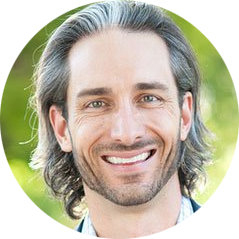 I came from a small coal mining town and from a long line of coal miners. In fact, my father, both grandfathers and all great-grandfathers worked at the local coal mine. So growing up, it felt like my family history was staring me in the face, daring me to try something different.
I came from a small coal mining town and from a long line of coal miners. In fact, my father, both grandfathers and all great-grandfathers worked at the local coal mine. So growing up, it felt like my family history was staring me in the face, daring me to try something different.
So my plan was to end the family line of coal miners (which my parents encouraged) and go into business as soon as possible (which scared my parents to no end). That meant starting my first business at age 15 and winning a Young Entrepreneur of the Year Award from both the state of Utah and the Small Business Administration.
That meant going away to college to make the connections I couldn’t make in my small hometown–even leaving behind the full-ride scholarship my local junior college offered me. And that meant getting my Series 6 Securities License plus Life and Health Insurance certifications before I even graduated.
In fact, I even signed up some of my professors as my first clients.
I was bright-eyed, confident, and ready to take the financial industry by storm. But then it happened. I quickly realized that something felt off about the financial industry.
As a born entrepreneur, the financial products I was selling didn’t fit what I knew about building value and wealth. For example, Warren Buffett recently said, “If you own your stocks as an investment, look at them as a business.”
But if the 401(k) was a business, it’d be the last business I’d stick my money into.
Take a look: 401(k)s are investment accounts created by the government. But, were they created to help you, or to help the financial industry?
Let’s see if we can come to the same conclusion with 4 simple questions.
Q: What does the financial industry want?
A: Your money.
Q: How often do they want it?
A: Every time you pay yourself or get a new paycheck.
Q: How long do they want your money?
A: As long as possible, 30-40 years, or even your entire life would be ideal.
Q: How often do they want to give your money back?
A: As rarely as possible, so penalties and taxes are welcome.
Do you see now? It’s as if the government designed qualified plans (401(k), Keogh, 403b, IRA, SEP, Simple, RSP, etc) with the financial industry’s wish list in hand.
Take a look at these scary 401(k) facts …
- You can put money into a 401(k), but you can’t take it out without a penalty. So if the right opportunity comes along or the time is right to invest more in your business, you either take a 10% hit plus taxes on top of that or miss the opportunity.
- The government is your silent partner and can change their share at any time they feel justified to do so and you have ZERO say.
- There’s no cash flow with a 401(k), only non-guaranteed accumulation. That means you can continue to add money for years or even decades, but if the stock market drops, the money is not guaranteed to still be there.
- Your financial advisor typically has you invested in mutual funds run by people you don’t know, using an investment philosophy you may not even agree with.
- Those mutual funds are invested in companies you don’t know or understand and may even be morally opposed to. I’ve seen environmentalists who are unknowingly invested in big oil, and anti-smoking advocates invested in big tobacco.
- Plus, because you can’t control stock market ups and downs, you have no real control over your investments or your money.
That is simply NOT how businesses are run. And it’s NOT how wealth is created. So I came to the conclusion that the financial industry was not created to make the casual investor wealthy.
Instead it’s designed for banks, advisors, and Wall Street to take your money, take it often, and make it hard to take back.
At this point I had a decision to make. I could take the easy road and continue to sell Wall Street’s financial products, and make a lot of money doing it. Or I could quit, go against the grain and teach people a better way to grow and manage wealth.
A better way that doesn’t ask you to go all in on a 30-year bet that may or may not pay off when the time comes.
And instead shows you how to start creating that dream life that financial advisors like to say is 30 years down the road, but may actually be just 5 to 7 years away… maybe even 2 to 3 years away with the right direction.
To me, there was only one option. So almost as quickly as I started, I was done being a peddler for big financial institutions and began to question everything until I got answers. Only then did I start to teach what I knew and learned to be true.
My mantra was “no sacred cows.” And to be more concerned with “what is right” over “who is right.” That means investing for value, that means paying special attention to cash flow, and that means always having an exit strategy – all things that should resonate closely with an entrepreneur.



